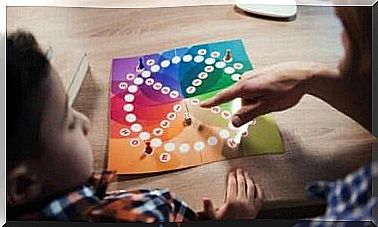Anger In Children: What Can Parents Do?

Rabies in children is common between the ages of 2 and 4 years. Feelings of frustration arise when faced with a situation that the child believes is unfair or unpleasant. In this theme, many parents find themselves on uncharted ground. So how can adults take control? Check out.
What is anger in children and how is it manifested?
Anger or anger is a natural emotion that is difficult for children to manage. It consists of a feeling of displeasure or unease in face of certain situations that disturb the calm in a negative way.
Often, children often express their anger in a physical way, tensing the muscles, which increases blood pressure. In addition, other visible signs of anger are sweating, reddening of the skin, and a headache.
Their behavior may also be different: the child may be restless and move around for no reason.
Other ways a child expresses anger may be as follows: kicking, shoving, throwing toys, pinching, yelling, biting, breaking things, and threatening.
Possible Causes of Anger in Children
In general, when children have constant outbursts of anger, anger or rage, it is due to external and internal problems, such as:
- Stress.
- Physical or emotional problems that cause them fear.
- Frustration and impotence of not being able to do or have something.
- Bipolar disorder.
- Depression.
- Desires to get attention.
- Difficulty communicating.
- Hypersensitivity to stimuli.
- Stress, tiredness, insecurity and jealousy.
For young children, showing this state of anger is a way of expressing yourself. Of course, it’s not the most correct way, but they use it to let their parents know that something is important to them.

The importance of teaching children to master anger
Feelings of anger or anger in children can cause unwanted and harmful behavior. The fact that a child responds aggressively in every situation can make him violent.
This would result in social, family, emotional and physical problems.
12 Techniques to Control Anger in Children
Although a tantrum from time to time is normal, parents should strive to control their children’s anger, and in order to achieve this, write down these strategies that will help you educate your little one:
- Don’t lose control as a parent. If you respond with screams, it will only make the situation worse and confirm to the child that their behavior is normal.
- Help her develop self-regulation skills. Thus, it will be prepared to face any adverse situation.
- Allow time for the child to calm down. Allow space instead of waging war with the child.
- Act firmly, patiently and lovingly; the child will accept what their role is within the family environment.
- Avoid correcting her when you feel frustrated or annoyed, as you risk ending up mistreating her.
- Teach your child by example. Don’t believe that the “do what I say and not what I do” trick works.
- Let her know that it’s okay to be angry, but that the overreaction is unacceptable.
- Teach her to identify the emotion, using spoken language to express herself.
- List to her the reasons why you are denying something she wants, like candy or watching television.
- Provide fun activities that help channel emotions.
- Praise and congratulate your child for the things he did right.
- Teach him to acknowledge his faults, admit his mistakes, and ask for forgiveness.

Benefits of Controlling Children’s Anger
It is necessary for parents to teach their children from an early age to express themselves, channel and manage their emotions in the best possible way. One of the advantages is that better communication between parents and children is encouraged.
Still, the child learns that there are other alternatives to communicate besides crying: dialogue, for example. Showing empathy is another of the benefits that children gain from knowing how to control their emotions and take an interest in others.
Finally, help your child understand that you, as a parent, are the instructors. If it is very difficult to calm your child or if the tantrums are very constant, take him to a specialist. The professional will have the ability to assess and offer techniques to control this behavior.







